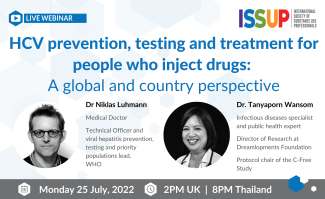Lecture 1: Central Asian open lecture series on Screening, Assessment, and Treatment of Substance use disorders
Open lectures to be provided by the joint initiative between ISSUP Ukraine, ISSUP Kazakhstan, and ITTC Ukraine.

A full day of sharing expertise and experience about engaging with chaotic alcohol-dependent drinkers and supporting them to turn their lives around. This conference will introduce you to Alcohol Change UK’s Blue Light Project, how it works, and how you can start implementing it in your local area.


